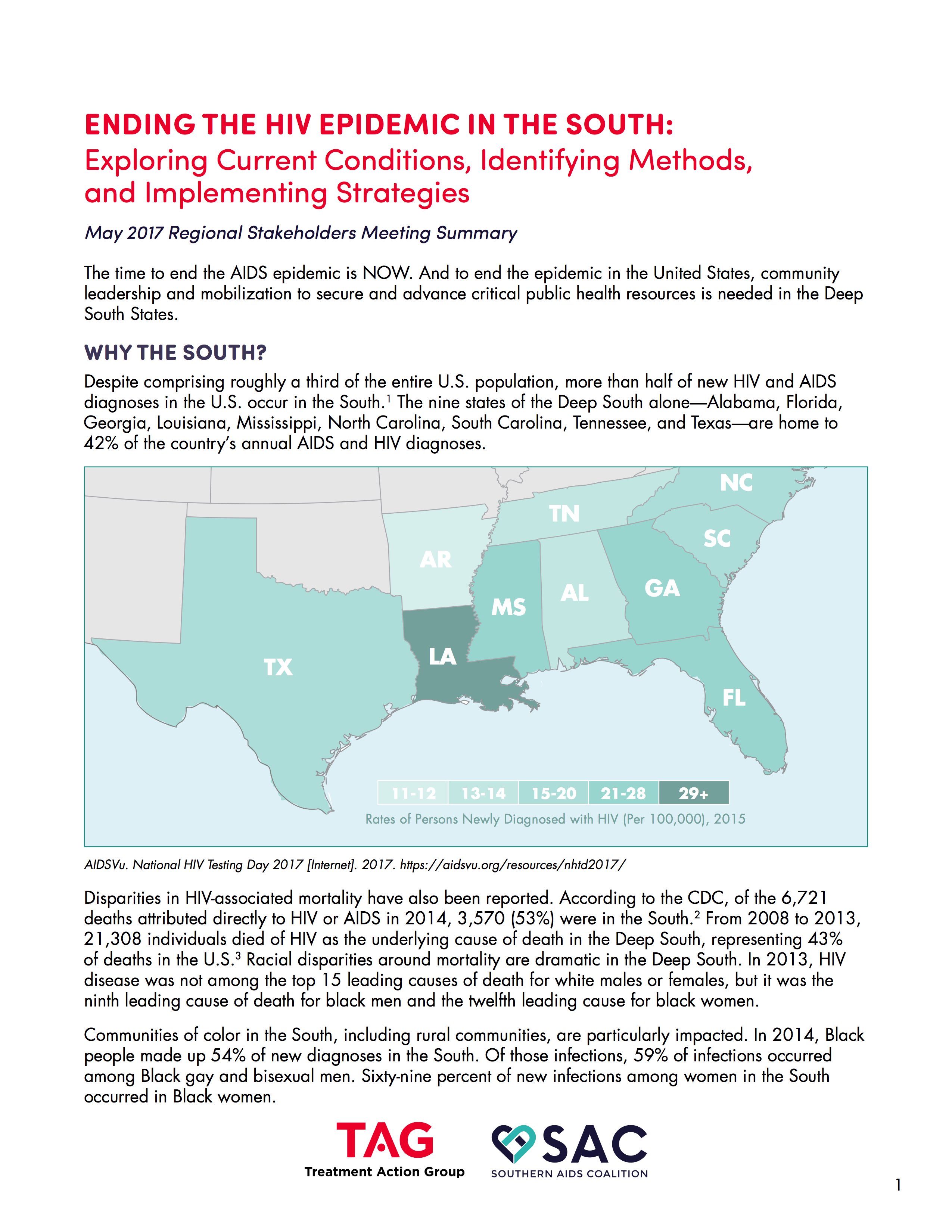Now is the time to end the HIV/AIDS epidemic in America’s southern states.
Over the past four years, innovative Ending the Epidemic (EtE) plans have emerged in several jurisdictions across the nation following New York’s 2014 announcement that it will end the state’s HIV epidemic by 2020. While most of these plans have been announced for cities, counties, and states outside of the South, community advocates in Fulton County, Georgia blazed their own trail in 2014, working with local government to establish a task force and develop an EtE plan. Houston community advocates led a process to develop their own plan in partnership with the Houston Health Department, ultimately launching their Roadmap to Ending the HIV Epidemic in Houston in December of 2016.
One thing is abundantly clear: We can’t end the epidemic in the U.S. if we don’t end it in the South.
In 2017 a number of industry and philanthropy partners—Elton John AIDS Foundation, MAC AIDS Fund, Ford Foundation, ViiV Healthcare and Gilead Sciences—provided Treatment Action Group with funding to take an active role in advancing EtE strategies in additional southern jurisdictions. In May, TAG, the Southern AIDS Coalition, the Southern HIV/AIDS Strategy Initiative, Sisterlove, AIDS Alabama, and the National Alliance of State and Territorial AIDS Directors (NASTAD) held a consultation with more than 40 community advocates and key stakeholders from across the Deep South to assess the major challenges and opportunities for EtE planning. Several key findings from that meeting can be found in a summary report.
The May meeting was also an opportunity to identify jurisdictions where community leaders are eager to launch their own initiative. Since the meeting, TAG and its regional partners have been working closely with community leaders in Louisiana, Alabama, and Nashville in charting the potential for EtE initatives. On October 19, TAG helped facilitate a statewide meeting put together by key stakeholders in Louisiana (in close partnership with the Louisiana Department of Health) to mobilize advocates from all across the state and determine next steps for drafting, launching, and implementing an EtE plan in 2018. Similar meetings are being planned in partnership with local community and other key stakeholders for Nashville on December 1 and for Alabama on December 14.
TAG remains fiercely committed to working with community leaders in all three jurisdictions as they prepare move forward, providing technical guidance and mobilization resources toward the development of draft recommendations related to prevention, care and treatment, data and surveillance, and structural and policy barriers. TAG also looks forward to expanding its capacity building work in additional jurisdictions in 2018.
In the next few weeks, TAG is also preparing to launch a web portal to guide activists and other community leaders through the basics, and not-so-basics, of EtE initiatives. We have also developed a document addressing the frequently asked questions we often get about the EtE campaigns.
Now is the time. Even with the many political challenges we face as a nation, there are opportunities for real, ambitious progress in addressing HIV in the southern US. Over the next year, we look forward to working with all our southern partners to show that community advocates across the South have the creativity, the drive, and the knowledge to make meaningful advances in any political context.

